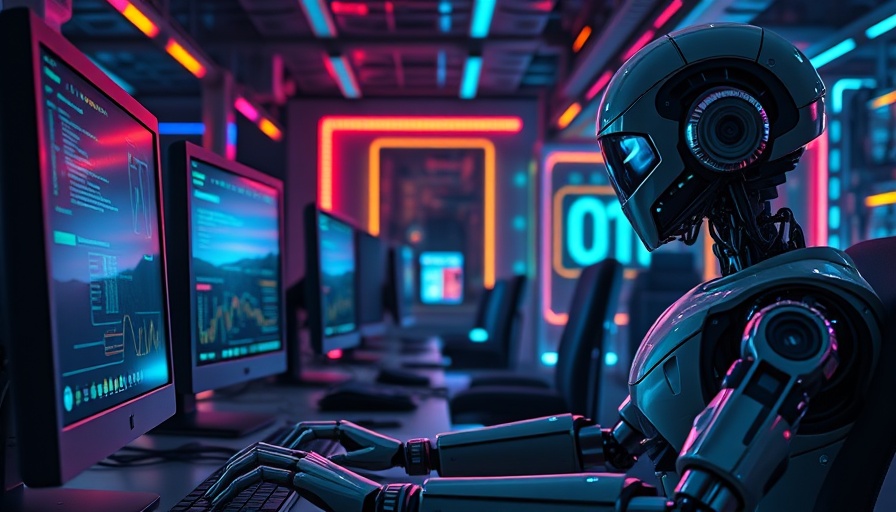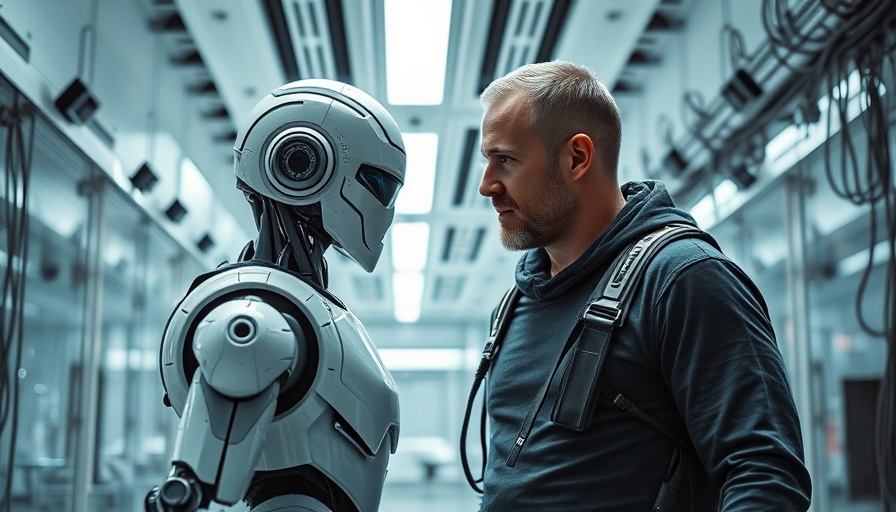
The Rise of AI in Coding Across Big Tech
There’s no denying the impact artificial intelligence (AI) is having on the technology landscape, particularly in coding practices within major firms. Recent insights reveal that Microsoft, a behemoth in the tech industry, is leveraging AI to create a significant portion of its code. According to CEO Satya Nadella, between 20% and 30% of the code housed in Microsoft’s repositories is now AI-generated. This shift marks a profound change in the nature of programming, implying that AI’s role is not merely supplementary but rather foundational.
In 'Up to 30% of Microsoft's Code Written By AI,' we uncover intriguing insights on AI's growing influence in coding practices, prompting a deeper analysis of its implications for businesses.
Understanding the Mixed Results Across Programming Languages
Nadella elaborated that the effectiveness of AI in coding varies widely among programming languages. Python has emerged as a standout performer, benefiting from AI's capabilities, while languages like C++ seem to lag. This distinction underscores the necessity for business owners and technology teams to identify which technologies can be enhanced by AI and invest resources accordingly. As AI tools continue evolving, understanding their language-specific strengths will become integral to maximizing productivity and efficiency.
The Competitive Landscape: AI's Role in Code Generation
Microsoft is not alone in this transformative journey. Meta’s Mark Zuckerberg indicated ambitions for AI-generated code to constitute 50% of Meta's total output by next year, reflecting a broader industry trend. Google has also revisited its numbers, revealing over 30% of its code is generated by AI. With such compelling statistics emerging, it’s crucial for business owners to recognize that reliance on AI is increasingly becoming the norm, not the exception.
The Importance of Adapting to AI: Lessons from Duolingo
In another significant development, Duolingo's CEO, Luis von Ahn, stressed the urgency for companies to embrace AI, stating that "AI is already changing how work gets done." His perspective aligns with the notion that businesses must rethink their operations to remain competitive. Duolingo's strategy to consider AI capabilities in their hiring and performance assessments emphasizes a proactive approach to this technological shift, further highlighting the idea that a refusal to adapt may lead to stagnation.
Challenges of Implementing AI in Business
While the opportunities presented by AI are enticing, business leaders must also grapple with the challenges. Transitioning to an AI-first culture requires more than just integration; it demands a cultural shift within the organization. Duolingo addressed these concerns by promising support during the transition, which echoes Shopify's recent announcements regarding AI integration within their practices. This narrative indicates that smoothing the pathway to an AI-centric workplace is critical for employee buy-in and overall success.
The Future: What AI-Driven Coding Means for Businesses
The future of coding—shaped by artificial intelligence—will likely redefine roles within tech teams. Scheduling a transition phase may mitigate disruption. Furthermore, as firms like Microsoft, Google, and Duolingo push ahead with AI-first strategies, business owners should take heed. The data suggests that those who act swiftly to incorporate AI into their operations will maintain their competitive edge in an increasingly tech-centric market.
Recommendations for Business Leaders
To adapt effectively, leaders must:
- Stay informed about evolving AI capabilities relevant to their industry.
- Evaluate existing workflows for automation opportunities.
- Consider the language-specific performance of AI tools when integrating them into their systems.
- Foster an organizational culture that embraces change and innovation.
It is essential for business owners to not merely wait and watch how AI plays out but to act proactively. The data is clear: the success of tech companies is increasingly dependent on their readiness to integrate AI.
In conclusion, staying alert to the potential of AI in coding not only prepares businesses for the future but also opens the door to unprecedented efficiency and creativity.
 Add Row
Add Row  Add
Add 




Write A Comment